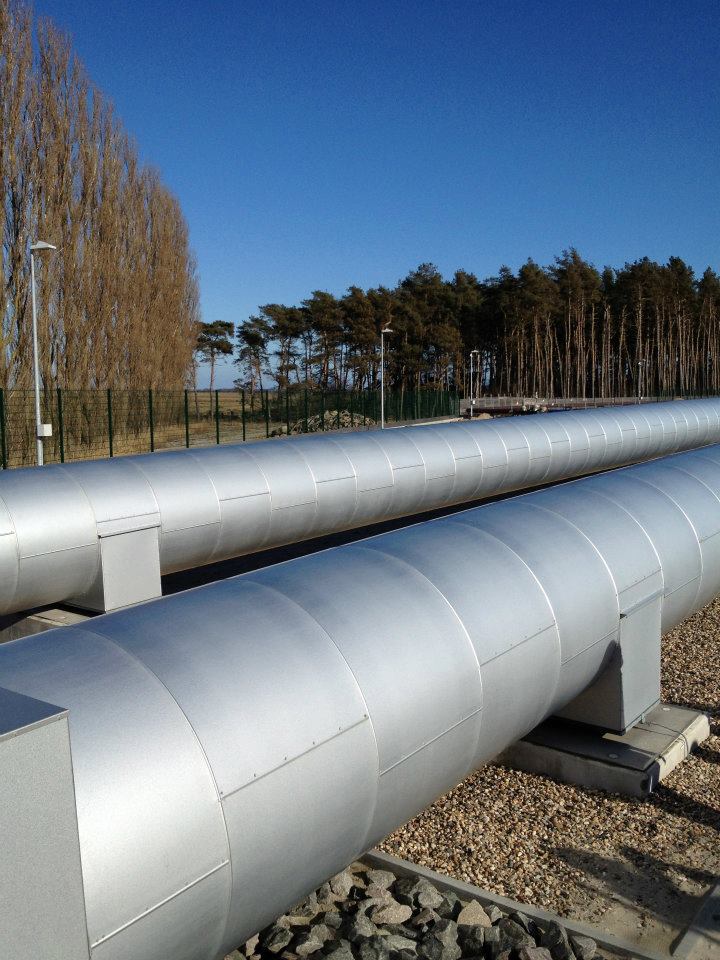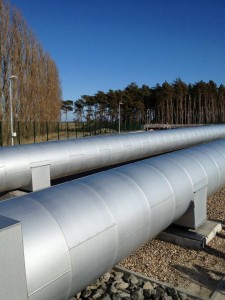
The Nord Stream Pipeline: Long-Term Solution or Merely a Stopgap?
 In a move that will consolidate more secure natural gas supplies from Russia to Europe, recent discussions between German Chancellor Angela Merkel and Russian President Vladimir Putin have indicated the possibility for further expansion of the Nord Stream natural gas pipeline.
In a move that will consolidate more secure natural gas supplies from Russia to Europe, recent discussions between German Chancellor Angela Merkel and Russian President Vladimir Putin have indicated the possibility for further expansion of the Nord Stream natural gas pipeline.
The talks have been hailed by the German Chancellor, who suggested that the meeting between the two heads of state – the first since Vladimir Putin’s recent election win – were a step toward “ensuring secure energy supplies for Europe.”
According to an article posted on United Press International’s website, discussion centered around doubling “the capacity of the Nord Stream to include third and fourth lines running under the Baltic Sea.”
Chancellor Merkel stressed “if demand for such gas volume exists, it would be possible to expand” to meet demands in Europe.
The Chancellor was also quick to dispel the idea that expansion of the pipeline would increase reliance Russian natural gas, an area which unsettles some German voters.
The talks came just one week after Gazprom – a Russian company that holds the world’s largest natural gas reserves and has strong ties to the Kremlin – announced in a press release that it had successfully completed full test loads on the Nord Stream pipeline. Following the tests, Gazprom’s Chairman of the Management Committee, Alexey Miller, issued a statement assuring that Gazprom will be “ready to supply our European consumers…during the upcoming autumn-winter period.”
With Germany’s decision to increase reliance on renewable energy to 30% of total energy use by 2020 and be nuclear free by 2022, the demand for fossil fuels – which they have chosen to largely get from Russia – is set to rise.
Recent articles such as those by the Kremlin’s English media arm, RT, illustrate the positive reception Russia has to the news of Germany’s new demand for fossil fuels. The impacts of a nuclear-free Germany can already be seen with its “planning to ratchet up its use of other renewable forms of energy in an attempt to compensate for its nuclear shortfall.”
What does all this mean for Europe?
Despite German desires to completely move away from fossil fuels in the long-term, there must be a transition period to prevent unnecessary harm to the economy. Increasing the capacity of cheap energy to Europe whilst avoiding a protracted “gas war” between Ukraine and Russia helps ensure energy stability in Germany. At the same time, Germany must be wary of the reliability of Russian natural gas supplies, particularly in the context of recent political instability.
Considering Germany’s role in holding the Eurozone together, as well as the global implications of a weak European economy, the last thing the world needs is energy insecurity in Germany. Energy expenditure is already a huge concern for many German homes and businesses. Despite future prospects of green energy and record-breaking advances, it is currently unable to meet the total needs of the German economy. The proposal to expand the Nord Stream pipeline’s capacity may just provide Germany with a stopgap measure toward maintaining energy security and retaining economic stability in Europe.





